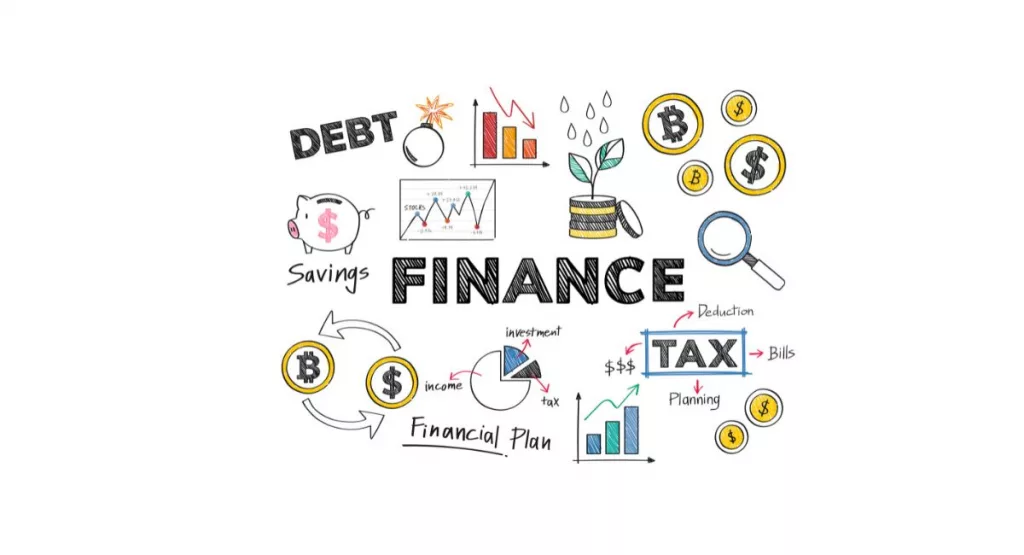Personal Finance Tips For Smarter Money Moves

In a world marked by uncertainty, achieving financial stability and prosperity is a goal that everyone aspires to. However, it takes a solid foundation of smart money management, disciplined savings, and informed investment decisions to achieve these aspirations and reach the path to a thriving financial future.
Luckily, following a few key principles can set an individual on the right track toward a brighter financial tomorrow, regardless of their current financial situation. In this blog post, we will delve into the importance of personal finance, and some essential personal finance tips that can pave the way to a prosperous future.
Importance Of Personal Finance
Personal finance empowers individuals to take control of their money, make informed decisions, and secure their future. Understanding budgeting, saving, investing, and debt management fosters financial resilience, and enables individuals to weather uncertainties and seize opportunities.
This skill set transcends income levels, ensures financial stability, and helps a person realize their goals, and enjoy peace of mind. Thus, personal finance equips individuals with the tools to navigate life’s financial complexities and build a solid foundation for a prosperous and fulfilling journey.
Personal Finance Tips To A Prosperous Future
Here are a few personal finance tips that can lead individuals to a prosperous future:
● Create A Comprehensive Budget
The most important aspect of sound financial management is a well-crafted budget. A budget serves as a roadmap for a person’s financial journey, helping them understand where their money is coming from and where it’s going.
One of the best ways to do this is to list all sources of income and categorize expenses into fixed costs like rent and utilities, and variable expenses like entertainment and dining out. Additionally, a person must regularly review and adjust their budget to align with their financial goals and ensure that they’re spending within their means.
● Prioritize Saving
Savings are considered to be a financial safety net and the fuel for many future opportunities. That is why individuals must aim to save a portion of their income consistently, ideally around 20% or more.
They could also establish an emergency fund with three to six months’ worth of living expenses to handle unexpected events without derailing their financial progress. Moreover, it is always a good idea to set up separate savings accounts for specific goals, such as buying a house, traveling, or retirement.
● Manage Debt Wisely
While some types of debt, like mortgages and car loans, can be considered investments, high-interest consumer debt (for example, credit cards) can quickly spiral out of control. That is why it is important to prioritize paying off credit card balances and high-interest loans as soon as possible.
Additionally, if a person has multiple debts, they could consider the debt snowball or debt avalanche method to tackle them systematically. Lastly, individuals should avoid accumulating new debt unless it’s absolutely necessary.
● Invest For The Long Term
Investing is important when building wealth for the future . While there are risks involved, investing wisely can significantly boost an individual’s financial future. One way to start is by contributing to retirement accounts such as a 401(k) or an IRA.
Such accounts usually offer tax advantages and compound interest, which, in turn, allows a person’s money to grow exponentially over the years. Additionally, a person should diversify their investments across different asset classes to minimize risk.
● Learn More About Personal Finance
Knowledge is a person’s greatest asset in the realm of personal finance. Learning more about investment strategies, financial markets, and the basics of money management is an absolute must. There are many books, online resources, and even financial courses that can empower someone to make informed decisions that align with their goals.
Moreover, understanding the power of compound interest, the impact of inflation, and the difference between various investment vehicles can give a learner a significant advantage.
● Do Not Overspend Unnecessarily
In a consumer-driven society, it’s easy for people to fall into the trap of overspending to keep up with appearances. Living a minimalistic lifestyle is a great principle for financial success. Thus, it is better for a person to maintain a frugal mindset rather than upgrade their lifestyle every time they earn more.
A good way to avoid overspending is to allocate raises and windfalls to savings and investments instead of adding them to spending money. This habit will accelerate an individual’s journey toward financial independence.
● Set Clear Financial Goals
Having well-defined financial goals provides direction and motivation in money management. Whether it’s buying a house, paying off student loans, or retiring early, having a clear vision of their goal keeps a person focused and accountable.
The best way to do this is to break long-term goals into smaller, more achievable milestones, and then celebrate successes along the way, while also regularly reassessing goals to ensure that they remain relevant.
● Protect With Insurance
Insurance is a vital aspect of any financial plan. Health insurance, auto insurance, and homeowner’s or renter’s insurance provide a safety net in case of unexpected events. Additionally, an individual should consider disability and life insurance to protect their income and provide for their loved ones in the event of incapacitation or death.
● Continuously Review and Adjust The Plan
For a thriving financial future, an individual must be consistent with monitoring and making adjustments to their financial plan. Life circumstances, economic situations, and personal aspirations can evolve over time. Therefore, a person must regularly evaluate their budget, investments, and overall financial strategy to ensure that they remain aligned with all evolving aspirations.
● Seek Professional Advice
While it’s a good idea to learn more about personal finance, it is an equally good idea to seek guidance from financial professionals who can offer invaluable insights.
Certified financial planners (CFPs) can help an individual create a customized financial plan based on their unique situation and goals. They can also provide expertise in areas such as tax planning, estate planning, and investment strategies.
To conclude, building a thriving financial future is a journey that requires dedication, discipline, and a commitment to making informed decisions. By following these essential personal finance tips, individuals can lay the groundwork for a secure and prosperous tomorrow. Remember, financial success is not about making huge sacrifices in the present, but rather about making mindful choices that lead to a brighter and more abundant future.
Andromeda Loans is India’s largest loan distribution network with a legacy that sprawls across 100+ cities, 1000+ branches and 3000+ employees. We also have over 25,000 distribution partners that are dedicated to helping customers achieve their financial goals. Head to our website to know more!








